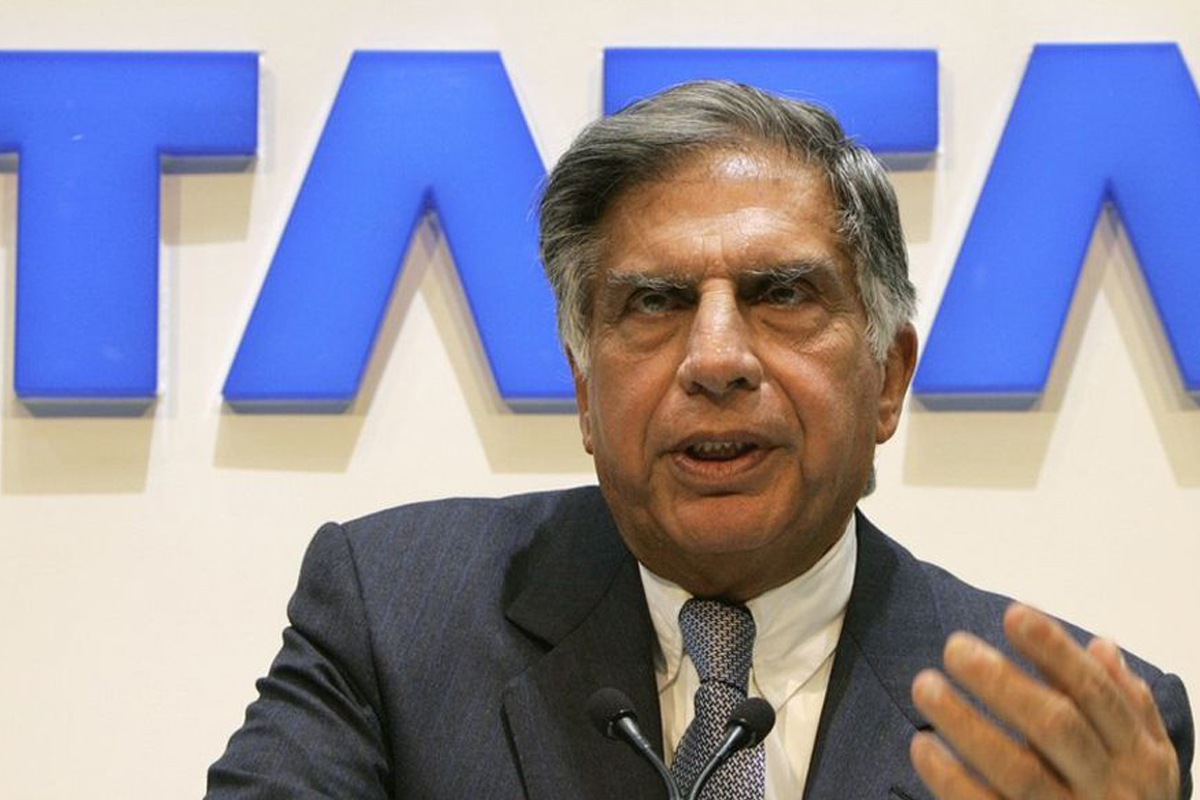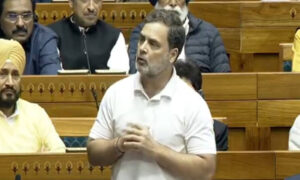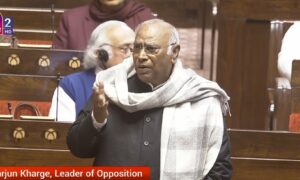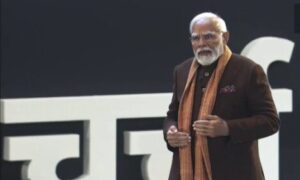
“Men who don’t seek the limelight get the floodlight” befits the late legend Ratan Tata, Chairman Emeritus, Tata Sons, whose name became synonymous with India’s growth on the global map. Leaving for heavenly abode, Ratan Tata leaves behind a legacy which will remain in people’s heart forever. A visionary, he consistently fostered a forward-thinking mindset, focusing on innovation and sustainable practices.
His vision has shaped the future of the Tata Group and influenced various industries. He joined Tata Industries in 1962 as the promoter company of the group – as an assistant and spent six months training at a company plant in Jamshedpur. From there, he went on to work at the Tata Iron and Steel Company (now Tata Steel), Tata Consultancy Services (TCS) and National Radio and Electronics (Nelco).
In 1991, JRD Tata, who had led the group for over half a century, appointed Ratan Tata as his successor. Ratan once said, “He [JRD Tata] was my greatest mentor… he was like a father and a brother to me – and not enough has been said about that.” Ratan Tata emphasised the importance of ethical business practices and community development, reinforcing the Tata Group’s commitment to social responsibility. He actively supported the group’s philanthropic initiatives by directing a significant portion of its profits toward charitable causes through the Tata Trusts.
It is a very sad day for India and India Inc. Ratan Tata’s passing away is a big loss, not just to the Tata Group, but to every Indian.
At a personal level, the passing of Ratan Tata has filled me with immense grief as I lost a dear friend. Each of my numerous interactions with…
— Reliance Industries Limited (@RIL_Updates) October 9, 2024
Shedding his image of a shy, underconfident youth, whose credentials as a business executive were uninspiring, Ratan blossomed into a larger-than-life chairperson of the Tata group. He gave his group new visibility and prominence through a series of bold gambles. In 2000, he purchased the British Tetley; in 2007, he announced his intention to take over Europe’s second-largest steel manufacturer the hugely loss-making Corus; in 1998, Ratan, who had once produced the first indigenously built car, the Indica, acquired the luxury car brands, Jaguar and Land Rover. Some financial analysts have questioned Ratan’s business acumen in costly loss-making foreign acquisitions. A major reason for the Tata group to retain its preeminent position was the Tata Consultancy Services (TCS), which often bailed out Tata Sons and buffeted its losses. TCS contributed a major share of the group’s net profits for many years.
Saddened by the passing away of Shri Ratan Tata, a leader par excellence, visionary industrialist, and philanthropist whose contributions have left an indelible mark on our society.
His deep resolve to innovation, ethical business practices, and social responsibility… pic.twitter.com/gVlzSZYudz
— Nirmala Sitharaman (@nsitharaman) October 10, 2024
Deeply saddened by the passing away of Shri Ratan Tata, a true leader who groomed many leaders to steer India’s largest conglomerate business. His life and work, and many acts of philanthropy, will remain an inspiration for many generations of entrepreneurs.
Heartfelt…
— P. Chidambaram (@PChidambaram_IN) October 9, 2024
Deeply saddened by the demise of Ratan Tata ji, a true nationalist & a visionary industrialist who served as the Former Chairperson of Tata Group and brought immense pride to Bharat through his exceptional achievements.
His strong & humane leadership led the Tata Group to… pic.twitter.com/srrUgci8vm
— Piyush Goyal (@PiyushGoyal) October 9, 2024
In his tribute to the legend, Prime Minister Narendra Modi hailed Tata as a “visionary business leader, a compassionate soul and an extraordinary human being”. Modi recounted “countless interactions” with Tata and said he was “extremely pained” by his death.
Across India, leaders from various sectors reflected on the immense influence Tata had on both business and society.
N.R. Narayana Murthy, co-founder of Infosys, expressed his grief, calling Tata’s demise a “huge loss to India.” He further said, “He was the king amongst the industrialists of India.” Murthy praised Tata for his unique traits, saying, “What I found him to be unique amongst the businessmen was the fact that he was competent, humble, courteous, curious, concerned, patriotic, and descent.”
Murthy shared his admiration for how Tata conducted himself in both personal and professional settings, saying, “On rare occasions when he disagreed, he was not disagreeable. Whether he was speaking to an admiring teenager, of which there are, of course, zillions in India, or to a much-respected senior business person, his sincerity, depth of knowledge, intense patriotism, and his legendary courtesy shone through effortlessly.”
Founder & Chairman, Bharti Enterprises, Sunil Bharti Mittal said, “I’m deeply saddened to hear of the passing of Ratan Tata. He leaves behind an astronomical imprint on the Indian industry, philanthropy and the perennial zest to better the world we live in. A true nation builder, his legacy in the growth of the country will forever inspire entrepreneurs and all Indians alike. On behalf of Bharti Enterprises, I share my deepest condolences with the Tata family.”
Kumar Mangalam Birla, Chairman of Aditya Birla Group, called Tata’s death a significant loss for the country. “Tata’s demise is the loss of a true visionary. His contributions to Indian industry and his unwavering commitment to the country’s development are unparalleled.”
RBI Governor Shaktikanta Das says, “There are two things that stand out about Shri Ratan Tata. First, he was a true visionary. Second, he was a strong believer in ethics in corporate governance. I think whenever the economic history of modern India is written, I would feel that a full volume will not be enough to describe his achievements…A great son of India and a phenomenal person. May his soul rest in peace.”
In a statement announcing Tata’s death, the current chairman of Tata Sons described him as a “truly uncommon leader”. Natarajan Chandrasekaran added: “On behalf of the entire Tata family, I extend our deepest condolences to his loved ones. His legacy will continue to inspire us as we strive to uphold the principles he so passionately championed.”
— Tata Group (@TataCompanies) October 9, 2024
Ratan epitomised this Tata tradition, in both business and his personal life. His lifestyle was modest compared to India’s new billionaires. The two major Tata trusts are among the world’s largest philanthropic enterprises. Tata believed in using wealth to uplift society and actively supported numerous charitable initiatives through Tata Trusts. He emphasised ethics in business and is known for his principled approach, advocating for corporate governance and transparency. He has also taken on a mentoring role for many young entrepreneurs, sharing his experiences and insights to inspire the next generation of leaders. Beyond his professional achievements, Ratan Tata’s personal values illustrate a character that can serve as a model for many. Known not just for his business acumen, he exemplified humility and approachability. Despite his immense success, Tata maintained a down-to-earth demeanour and valued interactions with employees.
With a passion for learning, Tata possessed a curious mind and was always eager to explore new technologies, social issues, and cultures. He enjoyed aviation and had a keen interest in flying. One of his dreams was to bring India’s flag carrier, Air India, back into the Tata empire, a goal he successfully achieved when the airline needed support the most. His love of animals, particularly dogs too is well known.
Maintaining composure while confronting challenges and setbacks throughout his career, Ratan Tata demonstrated resilience and adaptability, often emerging stronger from every situation, making him a compassionate, principled, and inspiring individual.
In 2008, the Indian government awarded him the Padma Vibhushan, the country’s second-highest civilian honour for his contribution not only in the corporate world but towards the society at large. To sum it up, it was a life well lived, with his name written in the history of the corporate world and shall always resonate for his immense contribution in India’s growth.
[the_ad id=”55722″]


















